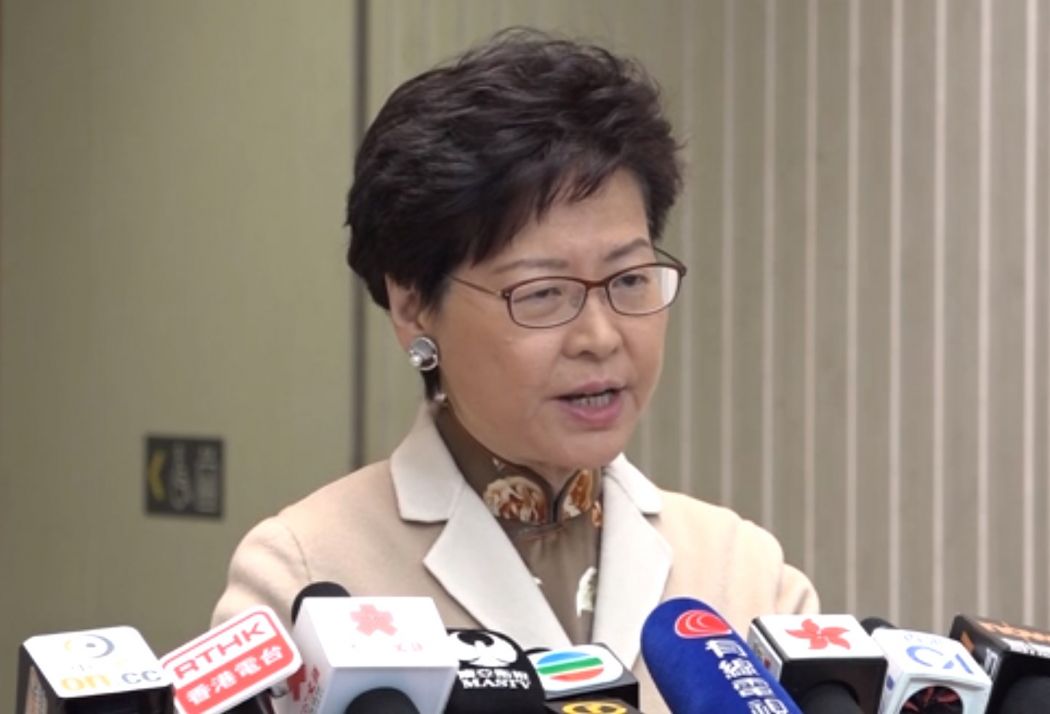Lawmakers Regina Ip and Alice Mak have proposed a draft law to regulate rent increases at malls owned, or already sold by, Link Real Estate Investment Trust.
Link took over the operation of public housing estate malls from the government in 2005. Critics accuse the company of forcing small and family-run shops out of shopping centres largely through rent increases, replacing them with higher-end stores. The firm has also sold off many of the malls to other private entities.
Ip, chair of the New People’s Party, and Mak, of the Federation of Trade Unions, will introduce a private member’s bill at the legislature’s housing panel to amend the Housing Ordinance and the Inland Revenue Ordinance. The proposed rules would regulate rent increases at commercial properties sold to Link, and would introduce a vacancy tax.

At a press conference on Sunday, Ip said the government had a responsibility to protect residents’ interests: “Link REIT departed from the original intent of its formation and adopted egregious and predatory business practices which led to excessive rental increases which squeezed out small and medium enterprises, narrowed consumer choice and resulted in much discomfort and a higher cost of living for the tenants, owners and occupiers of the housing estates in question,” she said.
“Public resources and public utilities should be regulated, just like the MTR,” she added.

Ip is a member of Chief Executive Carrie Lam’s cabinet, the Executive Council. However, Ip said she did not notify Lam before announcing the bill.
A private member’s bill must receive the chief executive’s written approval if it relates to public expenditure, or the political structure or operation of the government. It bill would also require approval from both geographical and functional constituencies at the legislature, where it may face opposition from the business sector.
However, if the government itself proposes a bill, only a simple majority of all lawmakers would be required.
Ip said at the press conference that she hoped the government would propose a bill to implement her recommendations. But she said her proposal may still pass, as many directly elected lawmakers were dissatisfied with Link’s performance.

‘Three mountains’
The row over Link REIT has been described by Lam as one of the “three mountains” the government has to face, alongside MTR fares and the cancellation of the Mandatory Provident Fund scheme’s offset mechanism.
But the bill proposed by Ip and Mak has yet to receive wide support from other lawmakers. Some, who have previously been critical of Link, have questioned whether the bill can halt rent increases.
Among the concern raised, lawmakers Au Nok-hin and Eddie Chu said Ip’s proposal to regulate properties that Link has already sold may be problematic.
“We believe the controversy will lead to two outcomes: first, the owners of the malls may sue the government to compensate for their losses because of the changes in the law; second, the government will not approve of the bill because of the risk of litigation and financial burden,” they said.

They also said the bill failed to target moves by mall owners to change shops into elderly homes and international schools, ignoring the needs of residents.
Pro-business Liberal Party leader Felix Chung said on a Commercial Radio programme on Tuesday that he believed Ip’s proposal was not practical, and violated Hong Kong’s principle of a free economy.
He said he had reservations over the bill, but had yet to decide whether to oppose it.
Link said in a statement in response that it will contact the relevant parties to listen to their suggestions.
“We believe that if the bill is passed, the relevant legal principles will be applicable to other commercial properties in Hong Kong, causing far-reaching effects,” it said.

Responding to the issue on Tuesday, Lam said she could not comment as she has yet to read the bill. Though she said she understood the intentions of Ip and Mak in proposing it.
“But using legislation to regulate business activities, after all, is very unusual. So I am sure we need to look at it in detail, and the members of the Legislative Council will also need to examine and study this idea very thoroughly before we go down this route,” she said.
“Over the past few years, the government has been working on increasing public facilities for residents to shop. The government is also reviewing the supply of parking spaces,” she said.
She said she will ask relevant departments to implement the building of new public markets in Tin Shui Wai and Tung Chung as soon as possible, since the two projects have received approval from the relevant District Councils.
